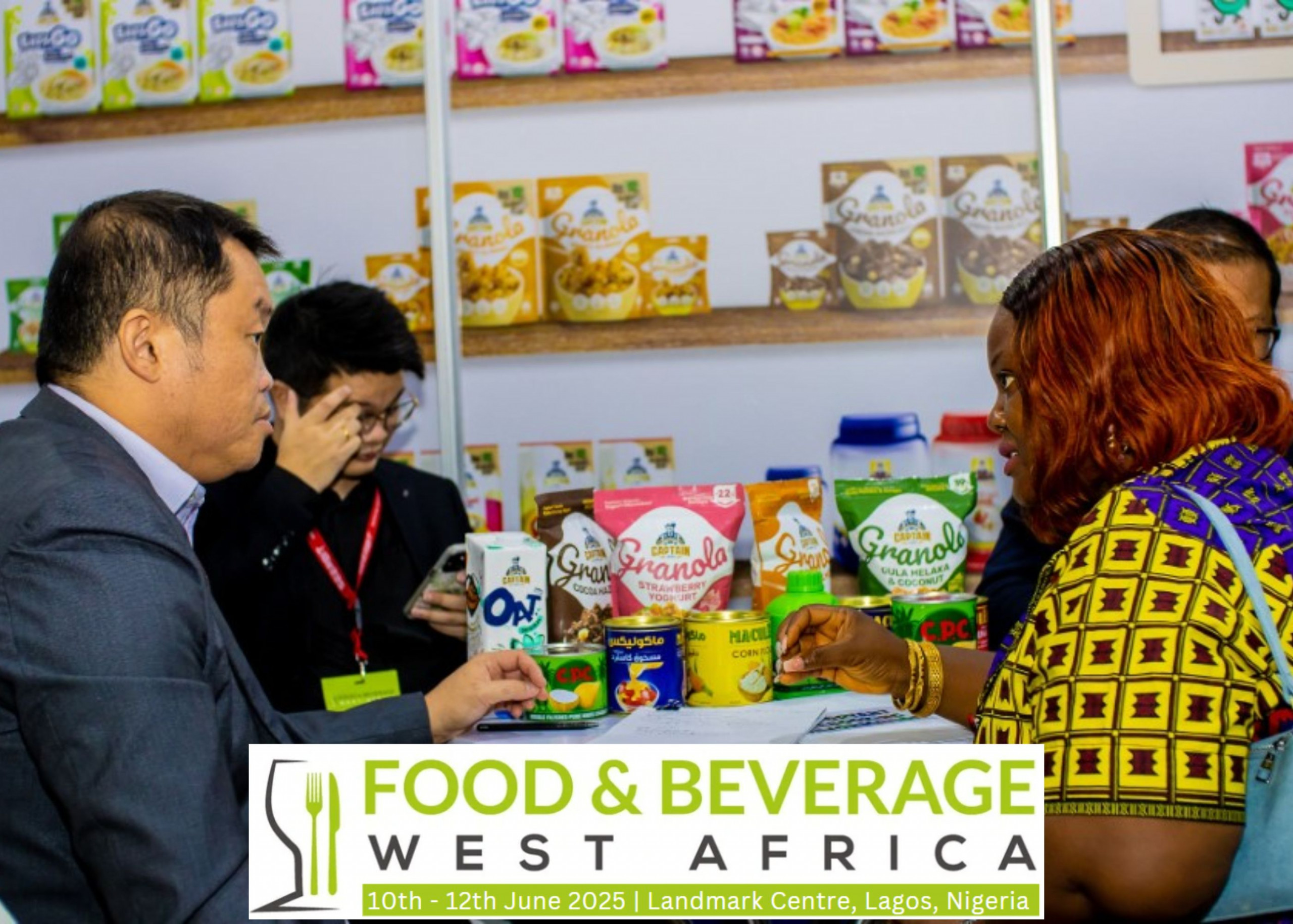Many Nigerians cherish memories of visits to the village and the family farm during school holidays. For Ifechukwudere Godwin Joseph, these moments ignited a passion that would eventually lead him to become a visionary agripreneur. What began as a childhood pastime of caring for small animals and plants has grown into a thriving agribusiness at the forefront of modern agriculture in Nigeria.
In an exclusive interview, the CEO of Venitz Integrated Services shared his inspiring journey from those early days on his aunt’s farm in Abia State to building a sustainable business that not only feeds people but also empowers the local community and inspires the next generation of Nigerian farmers. Despite coming from a family of white-collar professionals, he has turned his passion into a powerful force for change in the food production sector.
The spark that ignited the vision
Born and raised in Port Harcourt, Rivers State, Godwin studied biochemistry. However, his real passion lay elsewhere. Agriculture, with its hands-on nature and the satisfaction of producing something from the ground up, captivated his interest.
After completing his undergraduate studies in 2016, Godwin faced the dilemma many graduates encounter—what next? While contemplating his future, he found himself uninterested in the traditional nine-to-five job structure. The desire for autonomy and the flexibility to manage his own time motivated him to explore other options. This period of reflection led him to consider agriculture as a viable path. His love for seeing things grow and the fulfillment that came with it fueled his decision. However, the road to establishing a successful agribusiness was fraught with challenges, particularly in terms of financing.
A fortuitous partnership
In December 2016, Godwin’s vision found a potential partner when a close family friend returned from the UK with a similar interest in agriculture. They discussed the possibilities of starting a business in the agricultural value chain, ranging from crop production to livestock farming. Godwin, who already had a detailed plan mapped out, saw this as an opportunity to bring his ideas to life. They decided to merge their resources—his partner would provide the financial backing, while Godwin would handle the operational and technical aspects.
“I brought in a young lady I knew had a knack for economics and finance,” he recalled. “I realised that as a CEO, you can’t do everything yourself—you can’t be the researcher, the operations manager, the quality control, and the financial manager all at once. It doesn’t work that way, and eventually, you’ll become overwhelmed.”
Their first venture together was catfish farming, an industry with significant potential in Nigeria. Despite the initial slow progress, the experience gained was invaluable. While serving in the National Youth Service Corps (NYSC) in Akwa Ibom, Godwin honed his agricultural skills through participation in the Skills Acquisition and Entrepreneurship Development (SAED) program.
However, he and his partner faced significant challenges, particularly in acquiring large tracts of land for farming. Bureaucratic hurdles and land ownership issues in various states, including Rivers and Cross River, hindered their expansion plans. These setbacks eventually led to the dissolution of the partnership, prompting Godwin to strike out on his own.
Birth of Venitz Integrated Services
In 2020, Godwin founded Venitz Integrated Services, a comprehensive agribusiness that focuses on livestock and crop production, agribusiness consultancy, and more. Starting with minimal external funding, including a ₦400,000 seed grant from Shell Live Wire training, he has grown the business into a multifaceted enterprise. Venitz is involved in catfish and poultry farming, as well as consulting services for new and struggling farmers. One of their recent projects involved setting up a large plantain and pineapple farm in Imo State, demonstrating his capacity to manage large-scale agricultural operations.
Running Venitz Farms, which spans multiple operations from catfish farming to agro-processing, requires strategic management. Godwin candidly shared how he navigates this complexity. Initially, he relied heavily on family members for labour, offering them compensation comparable to what he would pay external workers. This approach ensured a high level of commitment and care in the work done, given the familial bonds.
As operations grew, he began to employ part-time workers and collaborate with other business owners for specific tasks, such as processing dry fish. He emphasised the importance of hygiene and quality, particularly since some of his products are exported. “I wanted a healthy product free from carcinogenic risks,” he noted, underscoring his commitment to maintaining high standards.
Delving into agro-processing
When asked about his venture into agro-processing, particularly with products like tiger nut powder and soybean flour, Godwin detailed the process with a hands-on approach. “We start by purchasing raw materials—tiger nuts and soybeans—from the market. The first step is sorting through them, removing any stones, chaff, or impurities. It’s similar to sorting beans,” he explained.
For some batches, the raw materials are thoroughly washed and then dried or fried to remove as much moisture as possible. “The goal is to get rid of all moisture because, ultimately, you’re blending them into a fine powder,” he explained. Although Godwin doesn’t have the machinery for this step on his farm, he leverages processing hubs. “I take the raw materials to these hubs, where they blend everything under my supervision. You can’t just leave it to them; it has to be done right,” he said.
Once the blending is complete, he brings the product back for repackaging. “It’s more of a partnership venture. I don’t do everything on the farm; the blending is handled outside because you need big industrial machines for that. The blending process takes time to achieve that fine powder consistency, like what you find in regular milk powder.”

Godwin emphasised that the target audience for his soybean blend is primarily children and babies. “It’s a rich substitute for the increasingly expensive baby milk. Soybean flour is blended with seven ingredients, including tiger nuts, dates, cashews, groundnuts, prawns, and unripe plantain, making it a nutritious alternative,” he told this publication.
For the tiger nut and date blend, Godwin intentionally targets diabetic patients. “Dates serve as a natural sweetener, a healthy alternative to artificial sugars, making it suitable for some diabetic patients who need to avoid sugar.” With his experience as the current quality control manager for Ossyjossy Associate Nig. Limited, he ensures that these products are of the highest and safest quality.
Education and mentorship
One of the core messages Godwin emphasised is the critical role of education in agriculture. He reminisced about his mother’s saying, “Business of who no go school and the one wey go school, dey different,” highlighting the distinction between educated and uneducated approaches to business. This philosophy is particularly relevant in agriculture, where technical knowledge can significantly impact success.
For instance, Godwin mentioned that his understanding of basic chemistry helped him in fish farming. This technical know-how is crucial, especially for young people drawn to agriculture by the prospect of financial gain but who might overlook the hard work and knowledge required.
He credited much of his agricultural knowledge and passion to two key mentors. The first is Samson Ogbole, widely recognised as the ‘father of soilless farming in Nigeria.’ Godwin admires Ogbole’s extensive knowledge and success in organic greenhouse farming. His farm, frequently visited by prominent figures like former President Obasanjo and serving governors, inspires Godwin to reach a similar level of achievement.
His second mentor is his uncle, who provided hands-on training in soilless farming (hydroponics) at his farm in Port Harcourt. Harold’s expertise in hydroponics, including water chemistry and plant biology, has deeply influenced Godwin’s approach to farming. Although he is not yet practising hydroponics due to the high costs involved, he plans to venture into it in the future. He also learned to cultivate exotic crops and the importance of collaboration among farmers from his uncle’s successful operations, which include pig and goat farming alongside hydroponics.
Leveraging social media for marketing
Social media has been a game-changer for Venitz Farms, particularly in terms of marketing. Godwin recalled how sponsored posts on Facebook and an active presence on Twitter under the moniker ‘Port Harcourt Farmer’ helped him reach a broader audience. This digital strategy has been instrumental in securing contracts and expanding his customer base across Nigeria.
In addition to social media, he says that he has explored other avenues such as trade fairs and radio programs, where he discusses various aspects of the agricultural value chain. These efforts have not only boosted his business visibility but have also positioned him as a knowledgeable voice in the industry.
Navigating challenges in the Nigerian agricultural market
Operating an agribusiness in Nigeria comes with its set of challenges, particularly in the current economic climate.
However, he remains resilient, continually seeking ways to adapt and stay afloat. “A Nigerian entrepreneur that has tried to stay afloat a couple of years in this country has done so well for himself,” he asserts, reflecting the harsh realities of doing business in a challenging environment.
Budgeting is another key challenge and Godwin says he has learned its importance. Proper financial planning is essential in agriculture, as unexpected costs can quickly erode profits. He stresses the importance of budgeting to navigate the challenging economic environment.
Collaboration is another pillar of his success as he highlighted the benefits of being part of farming communities where knowledge is shared, and support is available. He believes that no farmer is an island and that collaboration is essential for growth and success.
The business of farming
Godwin is a strong advocate for leveraging technology in farming. He shares his experience with tools like Plantix, an app that helps diagnose crop diseases and offers treatment solutions. He also encourages farmers to explore other available technologies, such as drones for soil health assessment and other mechanised tools, to increase efficiency and productivity.
For him, farming is not just about production; it’s a business. He advises farmers to focus on marketing their products effectively, utilising social media and other platforms to reach potential customers. He points out that successful agribusinesses treat farming like any other business, with a strong emphasis on marketing and industrialisation.
Godwin extends an invitation to all Nigerians to engage in agriculture. He believes there is room for everyone in the sector, whether for commercial purposes or personal sustenance. Given the current economic challenges, he argues that farming is not just an opportunity but a necessity for survival in Nigeria.
Future outlook
Godwin acknowledges the difficulties posed by rising fuel prices, which drive up transportation costs and, consequently, the cost of goods. The economic strain has forced him to temporarily halt some aspects of production, like the production of tiger nut powder and soybean flour.
While he is working on resuming production with innovative and cost-effective solutions, the service aspect of the company is going strong.
As is evident from his view of agriculture, he values knowledge acquisition and has his sights on intensive training under the guidance of Samson Ogbole. He is also pursuing a doctoral degree in biochemistry to improve his capacity.



